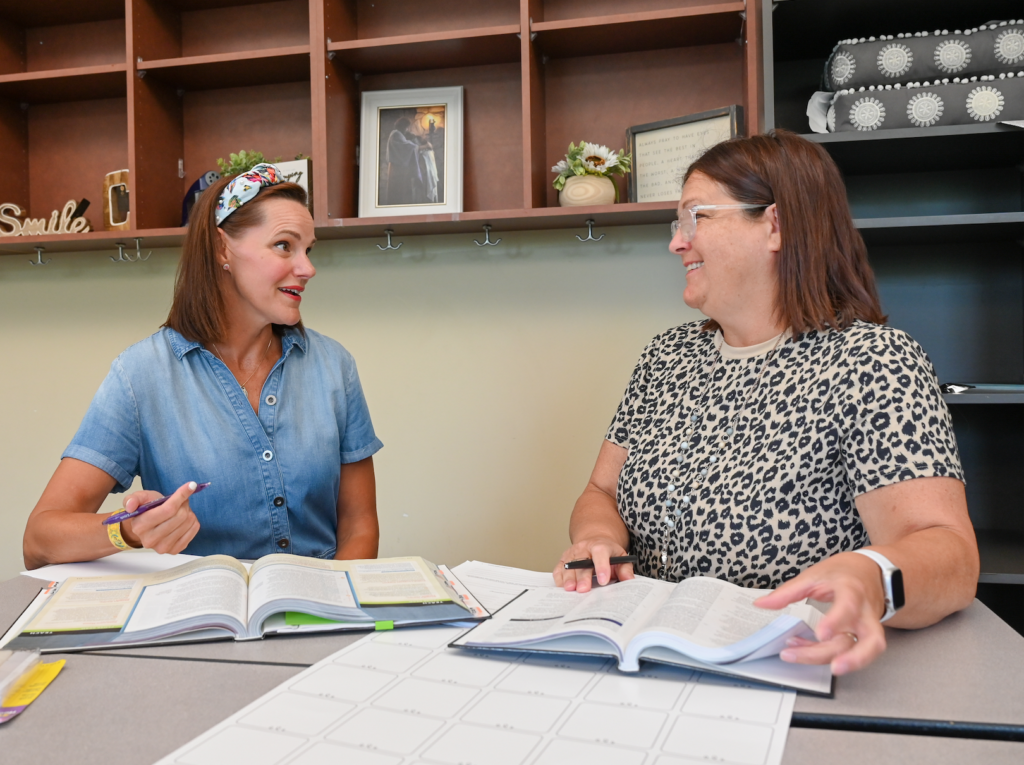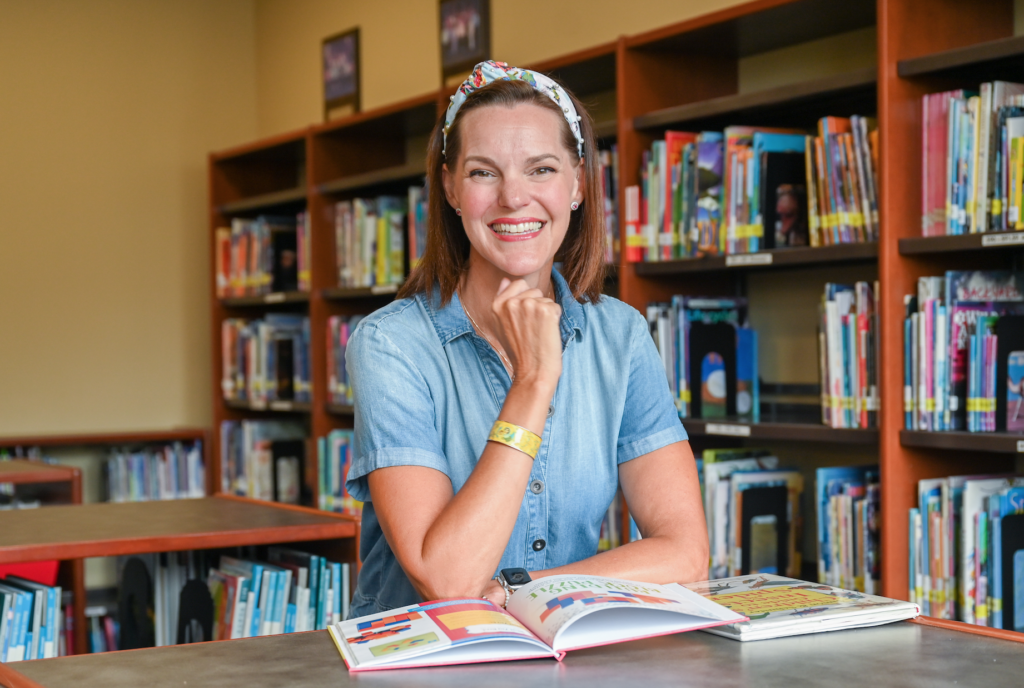
by Jan Dumay
Special to The Leaven
LEAWOOD — Even though she had a successful career in business administration, Casey Carrigan has felt a call to teach for as long as she can remember.
When school starts again this year, her calling will be realized when she begins teaching sixth grade at St. Michael the Archangel School in Leawood, where she is also a parishioner and where her two children have gone or still attend.
Carrigan, who left her corporate job to be a stay-at-home mom, is now participating in a new transition-to-teach program offered by Benedictine College in Atchison. Similar work-study programs are also offered elsewhere in the state, including Kansas State University in Manhattan.

It’s all an effort to address the teacher shortage affecting area schools, including those in the Archdiocese of Kansas City in Kansas. The archdiocese seeks full- and part-time teachers, counselors, paraprofessionals, teacher aides, instructional coordinators and substitutes.
“I’m so excited about it,” Carrigan said of her new career. “I feel very, very blessed at the opportunity to be a part of this program through Benedictine, and to be serving the archdiocese as a teacher while I’m going through the program. It really is a great opportunity, and while it’s going to be challenging, it’s also going to be very rewarding.”
In the two-year Benedictine program, called master’s of arts in teaching, participants have to have a bachelor’s degree and get recommendations to be accepted, Carrigan said.
“I interviewed and got an offer to become a teacher,” she said. “I had to go through the process of getting my restricted license, something the state of Kansas offers. If you are in the process of getting your degree, working toward your teaching license, you can teach while you’re going through the process.”
Diana Tate, principal of St. Michael the Archangel, said teaching is a gift of self, and Carrigan is an example of that.
“I have found such a wonderful warmth in the people who work in Catholic schools,” Tate said. “They are really on mission. For Catholic school principals having kind of a pool to come from Benedictine is such a gift to us, too, because we know they are being formed as Catholic school teachers. They are clicking that faith box, which is so important to us.”

To be able to take teaching classes while teaching in the classroom, especially for those in a second career, is a big deal, she said.
“As a second career, you bring a whole life experience that helps the kids answer the question, ‘Why do I have to learn this?’” Tate said.
Allison Carney, associate superintendent of Catholic schools in the archdiocese, said that although a teacher shortage has been on the radar for years, COVID took its toll. The archdiocese typically hires between 85 and 100 teachers a year. Although 88 have been hired this year, more are needed.
Specific classes like chemistry and physics are particularly hard to fill, she added.
“The last couple of years, we’ve had some turnover in teachers that’s been difficult,” Carney said. “For our diocese, our recruiting efforts have really increased.”
These include attending about 10 recruiting fairs every year, holding career fairs targeted toward retired teachers or those who may want to move from public to private Catholic schools, and building relationships with various colleges and universities in the region, speaking to students before they student teach.
“Our goal now is to try to really connect with them earlier to show them ahead of time what it could be like to be in our Catholic schools,” Carney said. “We want them to see the benefits of Catholic education and sharing their faith, and being in that Catholic environment on a regular basis before they get persuaded to go to a public school where they’d make a little more money. We really work hard in our diocese to keep our pay at 85 percent of public-school counterparts.”
For Carney, teaching at a Catholic school is a call from God. She tells recruit hopefuls that a great pleasure in that environment is that they don’t have to turn off their Catholic faith when they go to work.
“It’s part of who you are and the culture of the school,” she tells them. “We approach things in that virtue- based Catholic faith. We can talk to our kids when they’re struggling, and we can talk to them about cardinal virtues — things that can help them. We can talk to them when they’re doing well, we can talk to them about God’s role, where is God in your life. He is the primary teacher. He is the first teacher.
“Students see that they have good role models that are faith-filled, joyful Catholic men and women. And they see that every day.”
Carney welcomes questions from those who may be interested in positions available across the archdiocese or in learning about the transition-to-teach programs. She can be reached by email at: acarney@archkckcs.org. People may also apply online at: archkckcs.org/apply or see a full listing of all positions at: archkckcs.org/job-board.






